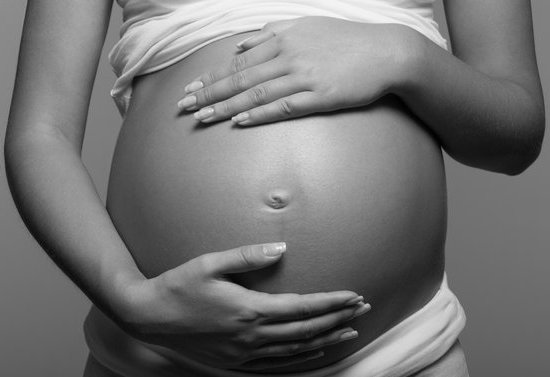Are you experiencing symptoms of pregnancy during periods and feeling confused? Many women may find it difficult to differentiate between the signs of pregnancy and normal menstrual symptoms. Understanding the difference is crucial for those trying to conceive or prevent unexpected pregnancies. This article aims to provide insight into the concept of pregnancy during periods, detailing the key factors that can cause confusion.
The menstrual cycle is a natural process that occurs in women’s bodies, involving hormonal changes and the shedding of the uterine lining. However, some early signs of pregnancy, such as missed periods, fatigue, nausea, and breast tenderness, can mimic these menstrual symptoms. It’s important to understand how to distinguish between these two scenarios in order to make informed decisions about reproductive health.
In addition to typical period-related symptoms, there are other factors such as implantation bleeding and underlying conditions like ectopic pregnancy or hormonal imbalances that can contribute to the confusion. This article will delve into these details and provide clarity on how they can be mistaken for regular menstrual symptoms.
Understanding the Menstrual Cycle
The menstrual cycle is a natural process that occurs in women of reproductive age, typically lasting between 21 to 35 days. During this time, the body undergoes hormonal changes in preparation for a possible pregnancy. The cycle begins on the first day of menstruation and ends right before the start of the next period. Understanding the normal processes of the menstrual cycle is crucial in distinguishing it from symptoms of pregnancy.
During the first half of the menstrual cycle, follicle-stimulating hormone (FSH) stimulates the development of an egg within one of the ovaries. At around day 14, luteinizing hormone (LH) triggers ovulation, releasing the mature egg into the fallopian tube. If fertilization does not occur, estrogen and progesterone levels drop, prompting the shedding of the uterine lining – known as menstruation – and marking the start of a new cycle.
Differentiating Between Menstrual Cycle and Pregnancy Symptoms
It’s important to distinguish between symptoms associated with a regular menstrual cycle and those indicative of pregnancy. Many women experience symptoms such as bloating, cramping, tender breasts, and mood swings before or during their periods. However, these can also be early signs of pregnancy. As such, it’s essential to pay close attention to subtle differences and consider timing when evaluating potential pregnancy symptoms during periods.
Early Signs of Pregnancy
Experiencing symptoms of pregnancy during periods can be very confusing for women, as it may seem contradictory. However, understanding the early signs of pregnancy can help differentiate between menstrual-related symptoms and those related to pregnancy. One of the most common early symptoms of pregnancy is a missed period.
This occurs when a fertilized egg attaches itself to the uterine lining, causing a halt in the normal menstrual cycle. It’s important to note that some women may experience light bleeding or spotting during early pregnancy, which can also be mistaken for a period.
In addition to a missed period, fatigue is another common symptom experienced by many pregnant women. This can be attributed to hormonal changes and increased levels of progesterone in the body. Nausea and morning sickness are also prevalent symptoms during early pregnancy, often occurring around 2-8 weeks after conception. Many women also report breast tenderness and swelling as an early indication of pregnancy, which is caused by hormonal changes preparing the body for lactation.
It is crucial for women who suspect they may be pregnant despite experiencing period-like symptoms to take a home pregnancy test for confirmation. While these symptoms can indeed signal pregnancy, they can also be indicative of other health conditions such as hormonal imbalances or miscarriage. Seeking medical advice from a healthcare professional is important in order to receive an accurate diagnosis and appropriate care if needed.
Understanding Implantation Bleeding
Implantation bleeding is a common occurrence in early pregnancy and can sometimes be mistaken for a regular period. It occurs when the fertilized egg attaches itself to the lining of the uterus, causing some light spotting or bleeding. This often happens around the time a woman would expect her period, leading to confusion about whether it is menstruation or implantation bleeding.
Implantation bleeding typically presents as light pink or brown spotting and is much lighter than a normal menstrual flow. It also does not last as long as a regular period, usually lasting only a day or two. Additionally, unlike menstrual blood which tends to be bright red and becomes heavier over time, implantation bleeding remains light and often stops on its own.
It’s important for women to be mindful of their body and any unusual bleeding they may experience, particularly if they are sexually active and not using contraception. Being able to recognize the difference between implantation bleeding and a regular period can help in determining if there may be a possibility of pregnancy despite experiencing what appears to be menstrual bleeding. If there are any doubts, it’s always best to seek guidance from a healthcare professional for further evaluation.
| Implantation Bleeding | Regular Period |
|---|---|
| Light pink or brown spotting | Bright red menstrual flow |
| Short duration (1-2 days) | Lasts several days |
| Light flow that doesn’t get heavier | Becomes heavier over time |
Other Possible Causes of Period-Like Symptoms During Pregnancy
It can be confusing for many women to experience symptoms of pregnancy during periods, leading them to question the possibility of being pregnant. Understanding the potential causes of period-like symptoms during pregnancy is essential for obtaining proper medical care and guidance.
Ectopic Pregnancy
One possible cause of experiencing period-like symptoms during pregnancy is an ectopic pregnancy. This occurs when the fertilized egg implants itself outside the uterus, typically in the fallopian tube. As the pregnancy progresses, this abnormal implantation can lead to vaginal bleeding that may resemble a period. It is crucial to seek immediate medical attention if there is suspicion of an ectopic pregnancy, as it poses serious health risks and requires prompt intervention.
Hormonal Imbalances
Hormonal imbalances can also contribute to experiencing period-like symptoms during pregnancy. Fluctuations in hormone levels, particularly progesterone and estrogen, may result in abnormal uterine bleeding that resembles a menstrual period. In some cases, hormonal imbalances can indicate underlying health issues that require medical evaluation and management.
Miscarriage
Miscarriage, or the loss of a pregnancy before 20 weeks gestation, can present with symptoms similar to those of a menstrual period. Vaginal bleeding and abdominal cramping are common signs of a miscarriage, which can be mistaken for a regular period. It is important for individuals experiencing these symptoms during early pregnancy to seek medical attention promptly for proper assessment and care.
The Importance of Taking a Pregnancy Test
Experiencing symptoms of pregnancy during periods can be a confusing and worrisome time for many women. It is essential to understand the importance of taking a pregnancy test to confirm or rule out pregnancy, especially if one is experiencing period-like symptoms.
Taking a pregnancy test should be a priority for anyone who suspects they may be pregnant, even if they are currently menstruating. If there is any doubt or uncertainty about potential pregnancy, it is best to take a reliable and accurate pregnancy test to eliminate any concerns.
Upon deciding to take a pregnancy test, it is crucial to ensure that the test is conducted properly and that the results are interpreted correctly. Here are some steps to consider when taking a pregnancy test:
- Choose a high-quality and reputable home pregnancy test kit.
- Follow the instructions provided with the kit carefully.
- Use early morning urine for the best results as it contains higher levels of human chorionic gonadotropin (hCG), the hormone detected in pregnancy tests.
- Read the results within the specified time frame as indicated in the instructions.
In addition to home pregnancy tests, it is also advisable to consult with a healthcare professional for further confirmation and guidance. Whether the result is positive or negative, seeking medical advice will help in understanding next steps and addressing any symptoms or concerns related to suspected pregnancy during periods.
Consulting a Healthcare Professional
Experiencing symptoms of pregnancy during periods can be a confusing and worrisome time for many women. It’s important to understand that while it is possible to have some symptoms of pregnancy even while still getting your period, a medical professional should be consulted to confirm or rule out pregnancy.
There are several reasons why someone might experience symptoms of pregnancy during their period, including hormonal imbalances, conditions such as ectopic pregnancy, or even miscarriage. These factors can contribute to the confusion and uncertainty surrounding the situation. Seeking the advice of a healthcare professional is crucial in order to receive proper medical guidance and care.
If you suspect that you may be pregnant despite experiencing period-like symptoms, it’s essential to take a pregnancy test as soon as possible. Even if the symptoms seem indicative of menstruation, there is still a possibility of being pregnant. A healthcare provider will be able to offer advice on when and how to take the test, and also provide information about additional measures that may need to be taken depending on the results.
In addition to taking a pregnancy test, it’s essential to consult with a healthcare professional for proper evaluation. Medical professionals can provide accurate information about what signs and symptoms to look out for and help navigate any potential confusion or anxiety surrounding the situation. If there is any doubt about whether one might be pregnant despite experiencing period-like symptoms, seeking medical advice is always the best course of action.
Conclusion
In conclusion, it is understandable that the symptoms of pregnancy during periods can be confusing and concerning for many women. The menstrual cycle and early signs of pregnancy can often overlap, making it difficult to differentiate between the two. However, it is important to understand the normal processes of the menstrual cycle and the common early symptoms of pregnancy in order to make an accurate assessment.
Implantation bleeding, hormonal imbalances, and other possible causes of period-like symptoms during pregnancy can further add to the confusion. It is crucial for women to be aware of these factors and to consult a healthcare professional if they suspect they may be pregnant despite experiencing period-like symptoms. Seeking medical guidance and taking a pregnancy test are essential steps in obtaining an accurate diagnosis.
Ultimately, while it is indeed possible to experience symptoms of pregnancy during periods, seeking professional medical guidance for an accurate diagnosis is key. Women should not hesitate to reach out to healthcare providers for support and advice if they have concerns about their reproductive health. It is important to stay informed and proactive when it comes to understanding the signs and symptoms of both menstruation and pregnancy.
Frequently Asked Questions
How Do I Know if I’m Pregnant on My Period?
It’s unlikely to be pregnant and still have a period, as menstruation is the shedding of the uterine lining that occurs in response to not becoming pregnant. However, some women may experience spotting or light bleeding during early pregnancy that may be mistaken for a period.
Can You Have Pregnancy Symptoms on Period?
It is possible to mistake pregnancy symptoms for those of PMS during your period. Symptoms like fatigue, breast tenderness, and mood swings can occur in both cases. If you have any doubts, it’s best to take a pregnancy test to confirm.
Can You Get a Full Period and Still Be Pregnant?
Getting a full period while pregnant is rare but possible. Some women may experience vaginal bleeding similar to a period throughout their pregnancy. This can be due to implantation bleeding or other factors, so it’s important to see a healthcare provider for confirmation and proper guidance.

Welcome to my fertility blog. This is a space where I will be sharing my experiences as I navigate through the world of fertility treatments, as well as provide information and resources about fertility and pregnancy.





